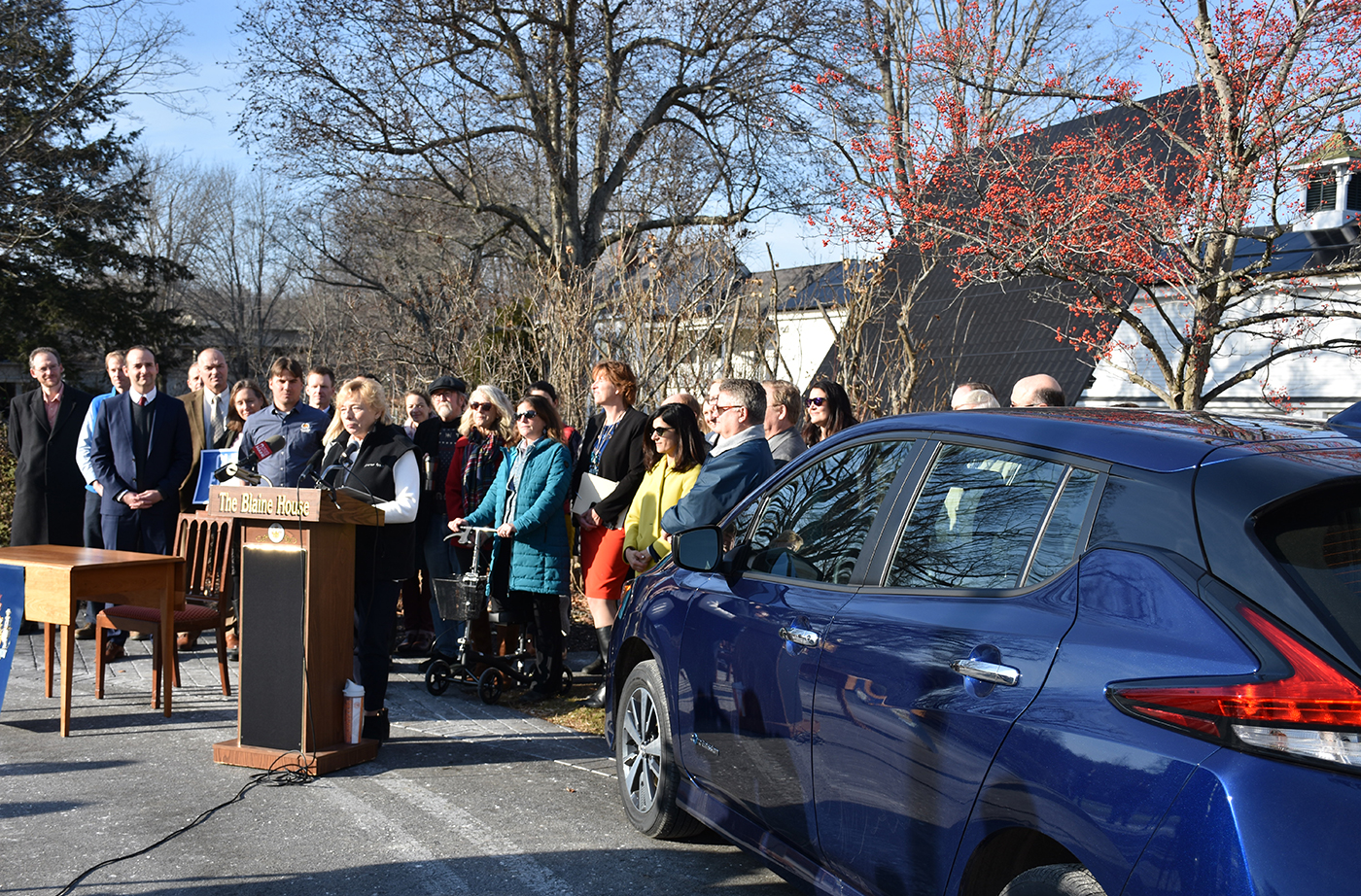Maine isn’t hesitating to step up and tackle climate change head on, with new laws that set ambitious new targets for reducing pollution. And we have unrolled the welcome mat for solar and other clean energy solutions.
In 2020, our biggest challenge will be making sure our actions meet our aspirations. We must grasp the opportunity to embrace the transition to a clean energy economy by making sure the solutions we pursue will help build a better energy future for everyone.

NRCM’s Top 5 Climate & Clean Energy Priorities for 2020:
- Adopt a Strong Climate Action Plan In 2019, the Mills Administration created the Maine Climate Council that is tasked with identifying the policies and actions Maine should use to meet the state’s new targets for reducing carbon pollution.
We will need your help to encourage the members of the Maine Climate Council to adopt a plan with concrete steps that will reliably reduce pollution, improve public health, grow our economy, and strengthen our communities. Check out this blog post for more information on the Maine Climate Council.
- Build a Transportation System That’s Better for Our Environment and Makes It Easier to Get to Where We Need to Go Pollution from cars and trucks is Maine’s leading contributor to climate change pollution—it accounts for 54 percent! It is too hard to get around in Maine without a car—or without a car that uses a lot of expensive, polluting gasoline.
Maine is just beginning to make progress accelerating the market for electric cars, which is a critical part of the solution. However, we also need more choices like expanded bus and van service, and more health care/social service transportation options, safer streets, and thriving towns and villages with places to live and work. Working together we can help both rural and urban Mainers get to where we need to go while delivering cleaner air for us to breath and also reducing fuel costs.
Maine is working with other states to adopt a regional transportation climate plan that could reduce carbon pollution from cars and trucks and provide the funding we need to give people healthier, affordable options for getting around. Learn more about the Transportation and Climate Initiative (TCI) and how you can get involved.
- Accelerate the Transition to Clean Energy After years of backwards regulations and vetoes of widely popular solar bills, a suite of renewable energy policies is leading to booming interest in community solar and other mid- to large-sized solar energy projects. We need these policies to succeed, with real-world solar projects that create state and local economic benefits.
Many towns and businesses are finding out that solar will save them money through reduced electricity costs. The Natural Resources Council of Maine will continue reaching out to and working with town officials, solar energy developers, other conservation groups, and others so that all Mainers benefit from solar energy.
- Increase the Energy Efficiency of Our Homes and Businesses Maine is one of the most heating oil-dependent states in the entire country. Every year we send billions of dollars out of state to fossil fuel companies. Solutions like insulation and heat pumps help cut energy costs while reducing pollution and making more comfortable spaces to live and work.
We’re working to make sure Efficiency Maine’s effective programs reach the most people possible. We’re also involved in the state’s process of updating building energy codes for new construction so they are more in line with standards for health, safety, and environmental performance that are in place across the country.
- Support the Passage of Clean Energy Legislation at the State House After an incredibly successful 2019, there’s still work to be done! In particular, NRCM is tracking the following climate-related bills being considered by lawmakers:
- Increasing the energy efficiency of our electrical appliances.
- Encouraging more electric school buses.
- Establishing a new tool for commercial building owners to finance clean energy improvements.
- Creating a public utility to replace our existing investor-owned, profit-driven utility companies, so that Maine people can have a utility that is a stronger partner in expanding energy efficiency and adopting clean energy projects.

Governor Mills speaks at solar panel ribbon cutting & Executive Order signing to make Maine State government more energy efficient.
When acting on climate, it’s critically important that we pursue solutions that lead to real, additional reductions in carbon pollution and strengthen Maine’s local economies. Despite Central Maine Power’s (CMP) claims in its multi-million-dollar advertising blitz, there is no evidence that the CMP corridor would actually reduce global emissions. Many local renewable companies and NRCM have also raised concerns that it could inhibit the development of new local clean energy projects.
That’s why we are also supporting two bills related to the stopping the proposed CMP corridor, including one to halt the influence of a foreign government (Quebec) in Maine people’s decision on the CMP corridor, and one exploring whether or not the permits given to CMP to develop on public lands were unconstitutional. NRCM also supports the citizen referendum against the CMP corridor, which is currently under review by the Secretary of State.
Finally, it’s important to point out that while we are leading, we are not acting alone. Maine is now part of the U.S. Climate Alliance, a bipartisan coalition of states representing more than half of the U.S. population that are committed to following the Paris Climate Agreement. When the Trump Administration pulled the U.S. out of the Paris Agreement, we became the only country not participating.
In and out of the State House, there’s lots happening, and none of it would be possible without your continued engagement and support, so thank you! To stay in touch about how you can be involved, please sign up for NRCM’s Action Network or get in touch about how you can get involved.
—Sophie Janeway, NRCM Climate & Clean Energy Outreach Coordinator











Really interesting action and analysis to think about the situation on the State.
Thanks for sharing!